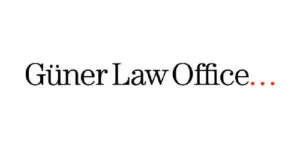In this article you may see below our brief notes, in Q&A format, on the limits of the management right of the employer which is one of the most discussed topics of the employment law.
(i) What is the Management Right?
In employment contracts, it is often not possible to fully regulate how the employment relationship will function with all the details. The employer's management right refers to the employer's authority to set unilateral rules on where, how, when and in what order the performance of work outlined in the employment contract will be carried out in order to ensure the orderly functioning of the workplace. Authorizations such as determining the starting and ending times of the daily working hours, the time period for annual leaves, the time for taking breaks, how the work will be distributed in the workplace, the tools, equipment and techniques to be used fall within the scope of the employer's management right.
(ii) What are the Limits of the Management Right?
Since the employer's management right is lowest source in the hierarchy of laws, the instructions to be given by the employer within the scope of their management right cannot contradict the higher rules and are only valid for matters not regulated in these higher rules. Therefore, the employer's management right is limited by the constitution, laws, regulations, collective/individual labor agreements, workplace regulations and workplace practices.
In addition, although employees are obliged to perform their work in accordance with the instructions given by the employer in principle, they must comply with them to the extent required by the principle of good faith. Therefore, another limit of the employer's management right is the principle of good faith.
While exercising the management right, the employer is also obliged to observe the obligation to conduct surveillance on the employees and to comply with the equal treatment obligation. In addition, the employer cannot exercise the management right in a way that violates the personal rights of the employees.
Another limit of the management right is not to create any major changes to the working conditions by way of using the management right; as any major changes that aggravates the working conditions of the employee can only be binding for the employee with his/her written consent upon being informed of the change by the employer in a written manner.
(iii) What are the Limits of the Employer's Right to Supervise the Employee within the Scope of the Management Right?
The employer's right to supervise the employee arises as a natural consequence of the management right. The Court of Cassation has decided that the employee will perform his/her work under the supervision of the employer by stating that "Undoubtedly, during this period, the employee will perform his/her work under the command and control of the employer or his/her representative (as a dependent)1". However, as explained below, this supervision power is not unlimited.
In the decision of the Constitutional Court dated 28.12.2021 and numbered 2018/34548, published in the Official Gazette dated 11.01.2022 and numbered 31747 with regards to Samet Ayyıldız's individual application, the limits of the employer's right to supervise were evaluated. The application is related to the allegations that the right to respect for private life and the freedom of communication were violated due to the employer's inspection of the correspondence of the applicant, working for a private company, made by using the messaging program WhatsApp, and the termination of his employment contract based on such correspondence. The Constitutional Court has concluded that if the employee was not fully and clearly informed in advance that the communication made through the computer allocated for use at the workplace could be monitored by the employer and regarding the conditions of use of communication tools, the employer should foresee that the employee could make personal correspondence through the workplace computer with the justified expectation that his fundamental rights and freedoms would be protected at the workplace, and concluded that the inspection of the correspondence program against the consent of the applicant and of the persons with whom he exchanged messages, has constituted a violation of the applicant's right to respect for private life and the freedom of communication.
Again, in the Constitutional Court's decision dated 10.03.2022 and numbered 2018/11988, published in the Official Gazette dated 19.04.2022 and numbered 31814 regarding Ramazan Şahin's individual application, it was concluded that the right to request the protection of personal data within the scope of the right to respect for private life was violated due to the processing of sensitive personal data by the administration without a legal basis, even if the employee who was monitored by fingerprinting was a public employee. The Court has underlined that in order to apply methods like personnel tracking by recording their biometric data, there must be a legitimate purpose within the scope of the administration's supervision and management authority, there must not be another suitable way to achieve this purpose with less interference with the rights and freedoms, and the implementation must be limited with the purpose.
(iv) Conclusion
While exercising the management right, the employer must act sensitively and without departing from the principle of good faith in line with its obligations such as to act with a legitimate purpose, to be moderate, to act objectively, to conduct surveillance on the employee and to notify the employee in advance. The employee, on the other hand, is obliged to comply with the legitimate instructions given by the employer as a requirement of the dependency relationship between the employer and the employee, and if he/she fails to comply, he/she may be subject to disciplinary penalties, his/her employment contract may be terminated and/or he/she may be liable to pay compensation.
Since the employer cannot give instructions contrary to the constitution, laws, regulations, collective/individual labor agreements, workplace regulations and workplace practices, the principle of good faith, the personal rights of the employee and the equal treatment obligation, the employee is not obliged to comply with the instructions that violate such rules. If the employment contract is terminated due to the employee's failure to comply with such instructions, the consequences of unfair, invalid or malicious termination may arise. In addition, the employee may request compensation by terminating the employment contract for just cause. If the right of management is exercised in violation of the principle of equality, an administrative fine and the employee's right to claim compensation may arise in accordance with the Labor Code.
Footnote
1 Decision of the Court of Cassation General Assembly of Civil Chambers numbered 2016/9-1414 E. 2016/1072 K. and dated 16.11.2016
The content of this article is intended to provide a general guide to the subject matter. Specialist advice should be sought about your specific circumstances.


